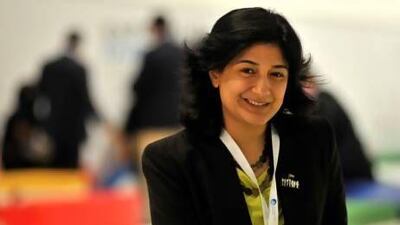Banks are alienating half their customer base by keeping women out of top jobs. That is the view of the first female bank board member at United Arab Bank (UAB). Sharjah-born Najla Al Midfa, who is also a senior manager at the Khalifa Fund for Enterprise Development, says the rate of progress in the entry of women to corporate board membership has been "unacceptably slow". Here, she talks about her experiences.
How long have you been a board member? How did it all happen?
It's only been a year. UAB asked me for a couple of reasons. Firstly, my dad was on the board and they wanted to see the next generation taking over. They also selected me based on my background. I had been in consulting at McKinsey and focusing on financial services and UAB had been a forward-looking bank. They saw value in diversifying and having younger people.
What was it like when you started?
In the first couple of meetings it certainly was strange. But the chairman provided me with a lot of mentoring and support, along with the management, to ensure to bring me up to date with strategy. It's been an interesting experience.
You say the rate of progress has been slow, particularly in the financial services industry. Has your appointment changed perceptions?
One bank changing isn't going to change the game. Having targets and quotas will force them to change. They were in a comfort-zone, with the same board members for long periods of time. If they don't see other women on bank boards, they assume it's not really necessary.
What is your argument to other banks for change?
Half of your customers at your bank will be women, [so it is] strange that you wouldn't have that representation at the board level. There are two reasons to have women on boards. Firstly, it's the right thing to do from the perspective of gender equality and women empowerment. Plus, it makes good business and corporate governance sense to have diversity on the board.

